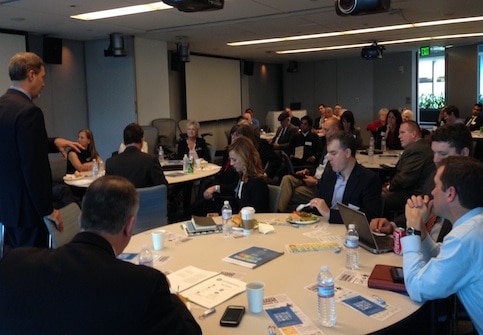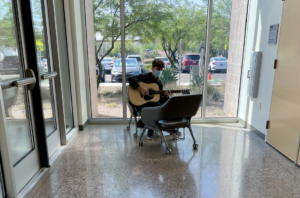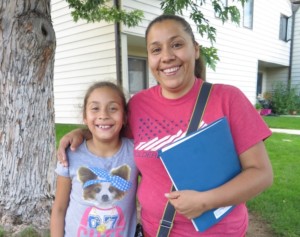The Digital Learning Opportunity & What it Means for School Finance

Learning opportunities are expanding and improving around the country. With online and blended learning, students are gaining access to personalized learning and expanded options.
Digital Learning Now! hosted a meeting at Microsoft Cambridge (#NERDcenter) yesterday to explore the emerging opportunity set and the implications for state policy–especially school finance. Participants included state chiefs and policy makers as well as EdTech and policy experts–and an 8th grader attending Florida Virtual School.
State leaders from Alaska and Wyoming talked about the potential of better serving rural students. Lawmakers from Maryland were excited about the potential to better support disadvantaged populations and students new to English.
“Students will become the hub of their own data,” said Rob Curtin of Microsoft, describing the potential of personalized learning.
Rob Waldron, Curriculum Associates, described the personalization breakthrough of adaptive learning–software systems that use adaptive testing to quickly identify a student’s learning level and deliver targeted tutoring. Like MRIs compared to x-rays, adaptive learning is a big step forward, but Rob added, “Doctors and nurses still do the healing.” He also had the group chanting, “adaptive is better.”
Pam Myhra, a Minnesota representative, spoke about the improvement potential of competency-based systems where students progress based on demonstrated mastery.
Jonathan Oglesby described why The International Association for K-12 Online Learning has become the leading advocate for competency-based learning, “Technology is not the only way to move to competency-based system, but does make it easier to do it well and at scale.” He pointed to CompetencyWorks as an online community and resource on the topic.
Robyn Bagley, Parents for Choice in Education, said “There has been a 600% increase in online options since passing Utah SB65. Students and parents are empowered to choose high quality online options.”
Louisiana has emerged as a leader in part time online learning access for secondary students. Assistant State Superintendent Ken Bradford described Louisiana Course Choice.
In a 2012 bill, Louisiana students gained online options. After a rigorous provider review, approved courses are displayed on a site built with Agilix that acts like a cross between Kayak (for hotels) and iTunes (for music). Approved providers include national online learning companies, school districts, and individual teachers. Advice on course choice is available from five full-time counselors.
As the education landscape shifts from school as a place to learning as a service–a series of experiences that will soon be blend on online learning and local supports–I mentioned that it will be important for states to update school finance policies to Fund Options, Students, and Achievements. Pay Laystrom, Connections Education, outlined the challenges of fair fractional funding. Robyn and Ken described the tiered system of funding in Utah and Louisiana (i.e., different for different courses/providers) and the mechanics of how it follows the student.
Allyson Knox of Microsoft and Cameron Wilson of Code.org made the case that every student should have the opportunity to learn to code and should have access to computer science classes in high school. Over 120,00 new jobs every year require computer science degrees and only 50,000 students graduate yearly qualified for those positions.
For more on how digital learning is expanding options, see:
All of the DLN Smart Series papers were recently updated and compiled into a free (or inexpensive) ebook called Navigating the Digital Shift.
Digital Learning Now, Curriculum Associates, Florida Virtual School, and Pearson are Getting Smart Advocacy Partners. Tom is a director of iNACOL.







0 Comments
Leave a Comment
Your email address will not be published. All fields are required.